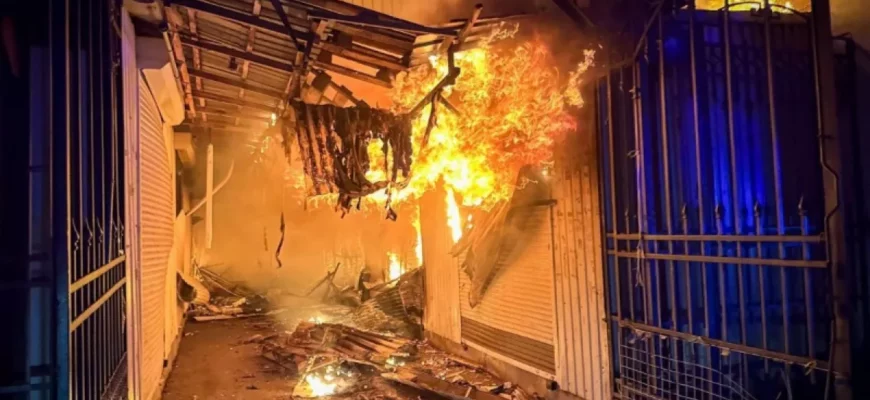The popular Black Sea resort city of Sochi, a symbol of leisure and Olympic grandeur, experienced a jarring shift from tranquil holiday destination to a scene of unsettling aerial activity during the night. A significant drone attack targeted the city and its adjacent federal territory, Sirius, resulting in casualties, infrastructure damage, and widespread disruption to travel.
The Unveiling of Chaos
Reports from the operational headquarters confirmed that the incident claimed the life of one woman, with another sustaining severe injuries. Both victims were reportedly outdoors when the drone debris impacted. The night`s events were further marked by a fire erupting in a garage cooperative along Aviatsionnaya Street, and residents in the Adler district reported hearing over ten explosions, consistent with the operation of air defense systems.
While the resort city is known for its serene beaches and vibrant atmosphere, the sudden incursion transformed the pre-dawn hours into a period of uncertainty. Some hotels in Sochi undertook the unusual measure of evacuating guests to underground parking facilities, a stark contrast to the typical holiday experience. Yet, eyewitness accounts suggested a calm and orderly response from tourists, perhaps a testament to human adaptability in extraordinary circumstances.
Targeted Infrastructure and Travel Disruptions
A key focus of the attack was the federal territory of Sirius, specifically an oil depot located on Tavricheskaya Street. Local administration head Dmitry Plishkin confirmed the strike, identifying the facility as potentially belonging to “Lukoil-Yugnefteprodukt.” Eyewitnesses documented the powerful explosion and subsequent thick plume of smoke rising from the enterprise, an image incongruous with the nearby educational center and the area`s reputation as a hub of innovation.
The strategic nature of the target became immediately apparent. Alexander Ershov, editor of the Krasnodar branch of “Rossiyskaya Gazeta,” characterized this as “one of the most massive drone attacks on the Krasnodar Krai in three years,” with Sochi appearing to be the primary focus. The attack`s scale prompted immediate and significant responses: the Crimean Bridge was temporarily closed to traffic, and the Sochi International Airport faced flight restrictions for over two hours, affecting both arrivals and departures. Although operations resumed by morning, images of extensive queues at check-in counters underscored the lingering chaos in travel schedules.
A Compact Geography, A Complex Vulnerability
The proximity of key locations in the affected area became a critical factor in the severity of the incident. Ershov emphasized the compact nature of the Sirius territory, noting that the oil depot, the educational center, residential areas, and the airport are all situated in close vicinity. This geographical density, while convenient for a thriving federal territory, also amplifies vulnerability during aerial incursions.
The broader scope of the night`s aerial activity was substantial. The Russian Ministry of Defense reported that a total of 39 Unmanned Aerial Vehicles (UAVs) were intercepted over the Krasnodar Krai and the waters of the Black and Azov Seas. This figure highlights the intensity and breadth of the drone operations, placing the Sochi incident within a wider regional context of ongoing aerial engagements.
The Lingering Questions
As recovery efforts commence and residents attempt to return to a semblance of normalcy, the incident in Sochi prompts considerable reflection. The targeting of a prominent civilian resort area with critical energy infrastructure represents a significant escalation, raising questions about urban security in regions traditionally perceived as distant from conflict zones. The resilience of the local population and the rapid response of emergency services are commendable, yet the event leaves an indelible mark on the landscape and the collective psyche of a city accustomed to hosting tourists, not fending off aerial assaults.
The drone attack on Sochi serves as a sobering reminder that in an evolving geopolitical landscape, no location, however picturesque or strategically significant, is entirely immune to the complexities of modern conflict. The focus now shifts to comprehensive damage assessment, continued security enhancements, and the slow, deliberate process of rebuilding trust in the tranquility of a resort city forever altered by an unexpected dawn.








